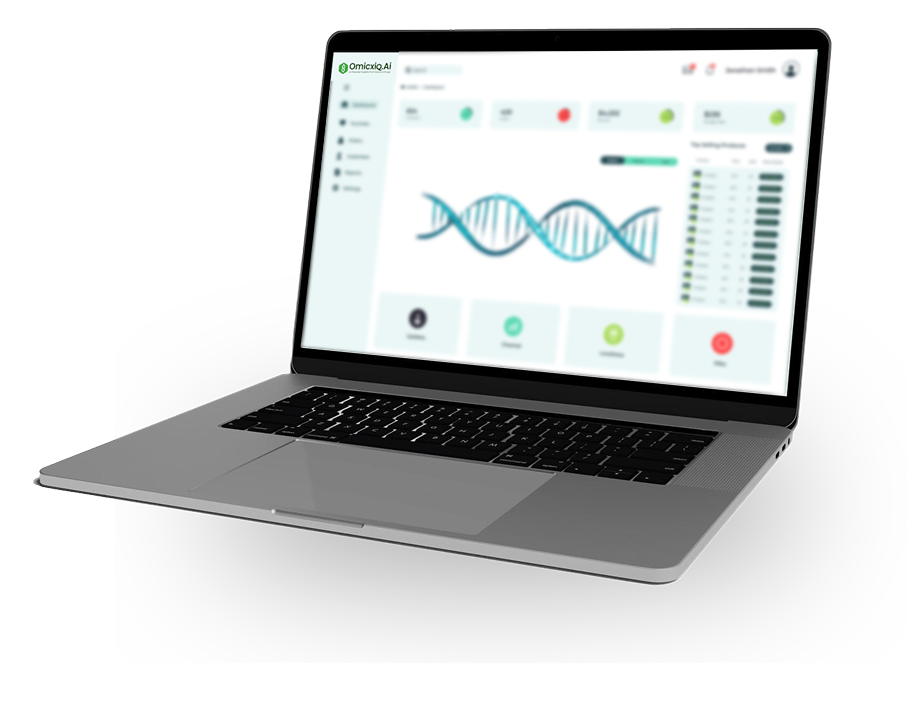
Integrative Foundation Models for Translational Genomics
OmicxIQ.Ai is an AI-powered platform that unifies genomic, proteomic, and transcriptomic foundation models to identify clinically actionable drug targets and biomarkers. By layering insights across omics, OmicxIQ.Ai provides a comprehensive understanding of variant pathogenicity and disease relevance, streamlining the path from data to therapeutic insight.
From Variant Classification to Pathway-Level Insight
Traditional variant interpretation often lacks the biological context needed for therapeutic translation. OmicxIQ.Ai bridges this gap by integrating multi-omic models to not only classify genetic variants but also assess their downstream impact on protein function, gene expression, and disease-associated pathways—enabling high-confidence target discovery and precision biomarker identification.


Multi-Layered AI Models for Variant-
to-Mechanism Mapping
OmicxIQ.Ai begins with EVO2, a genomic foundation model that classifies variants as pathogenic or benign. These predictions are refined using AlphaMissense, a proteomic model that evaluates the structural and functional consequences of missense mutations. Transcriptomic models then assess whether affected genes are dysregulated in disease contexts. Finally, variants are mapped to biological pathways using integrated genetic and protein interaction networks to uncover mechanistic insights and therapeutic opportunities.
Key Features & Capabilities
AI-Augmented Target and Biomarker Discovery at Scale
Multi-Omic Foundation Model Integration
Combines genomics, proteomics, and transcriptomics for layered variant interpretation.
Variant Pathogenicity Prediction
Uses EVO2 to assess likelihood of genetic variants being disease-causing.
Functional Consequence Analysis
Employs AlphaMissense to model structural and functional impact on proteins.
Transcriptomic Dysregulation Profiling
Evaluates gene expression changes in disease-relevant tissues.
Pathway-Level Insight
Maps variants to biological networks to identify mechanisms and intervention points.
End-to-End Interpretation Pipeline
Translates raw variant data into druggable targets and clinically relevant biomarkers.
Contact Us
Would you like us to get in touch with you? Fill up the form & we will reach out to you




